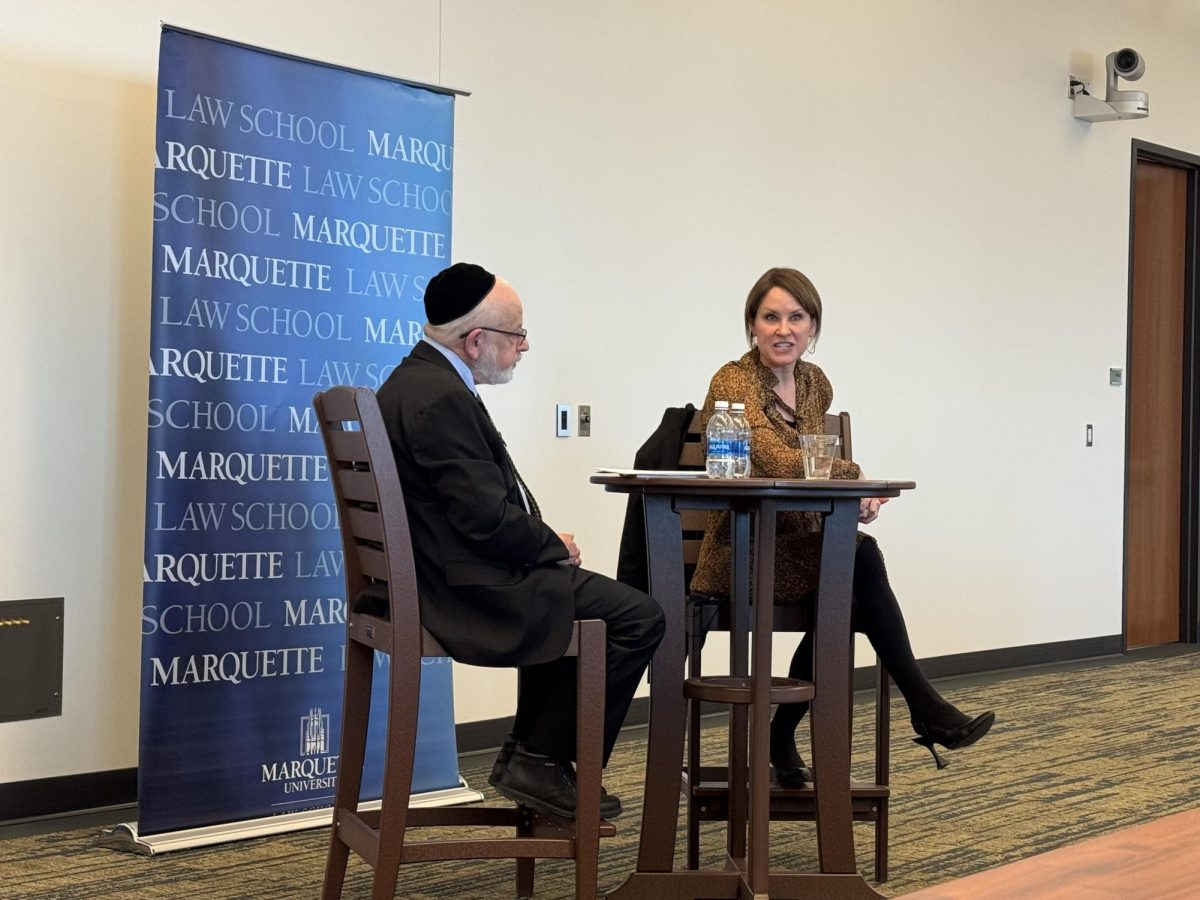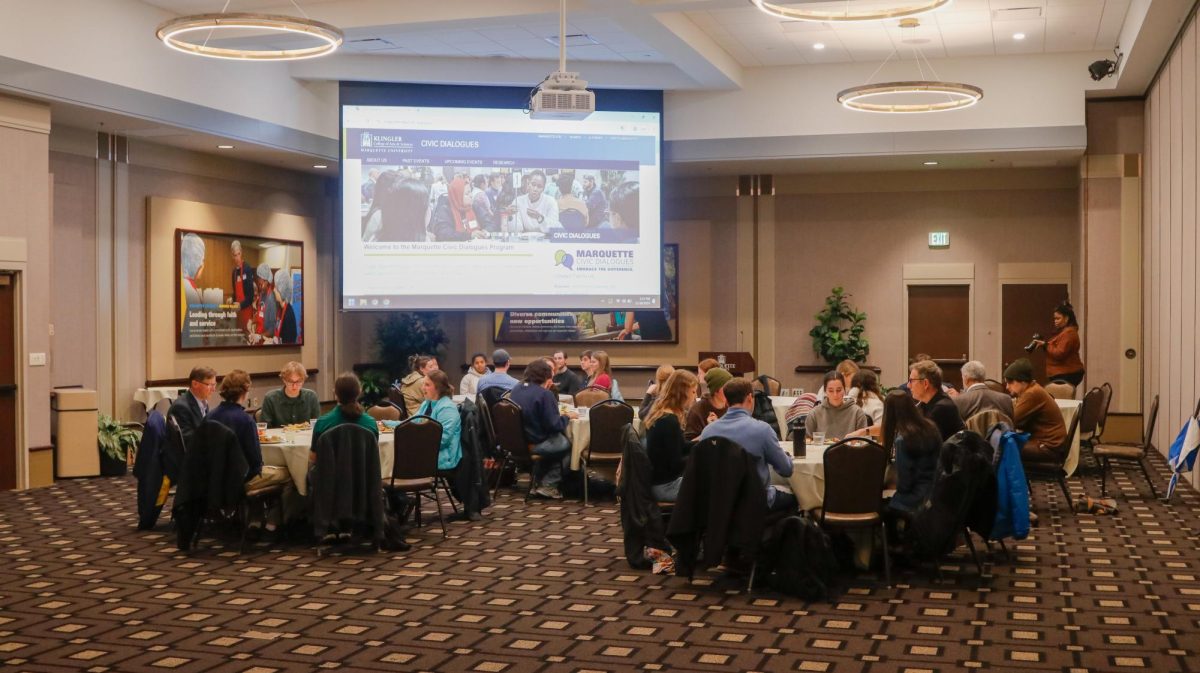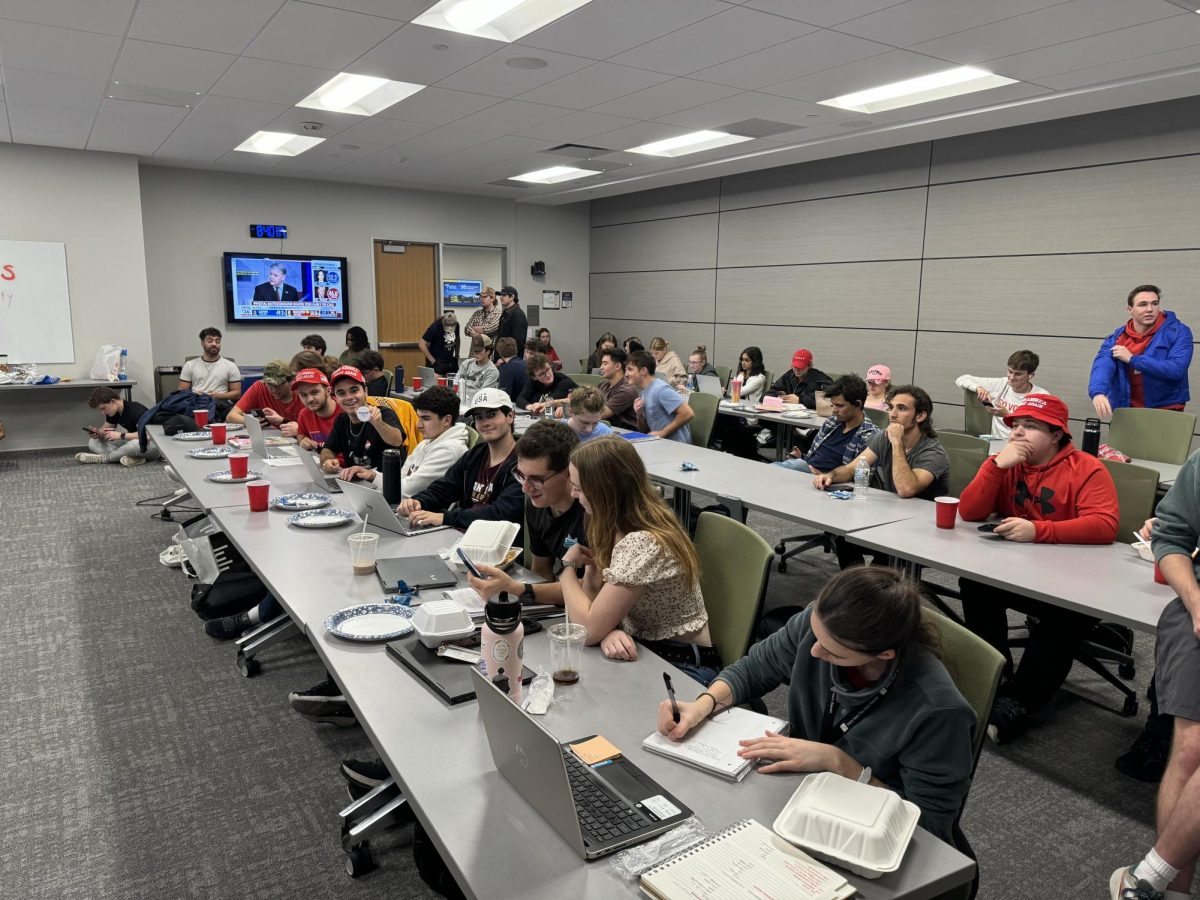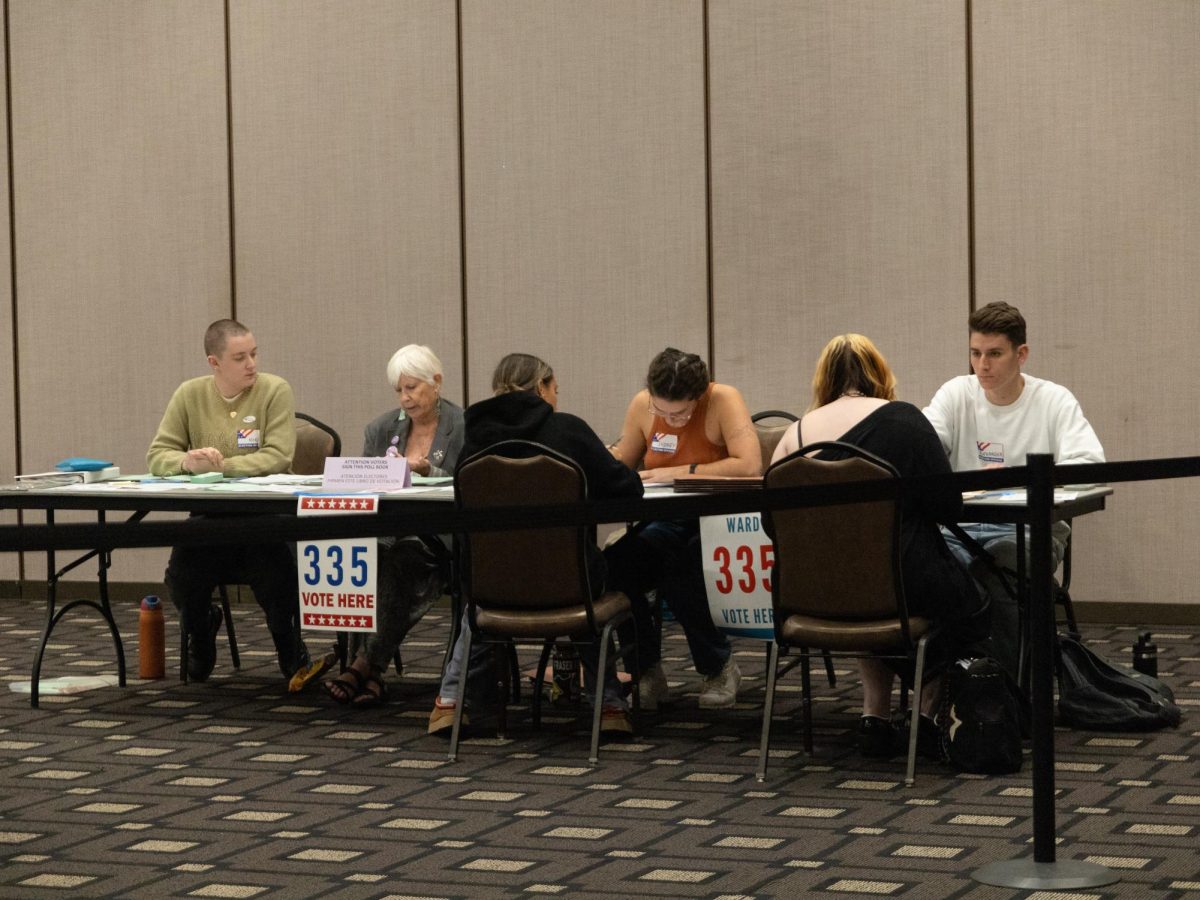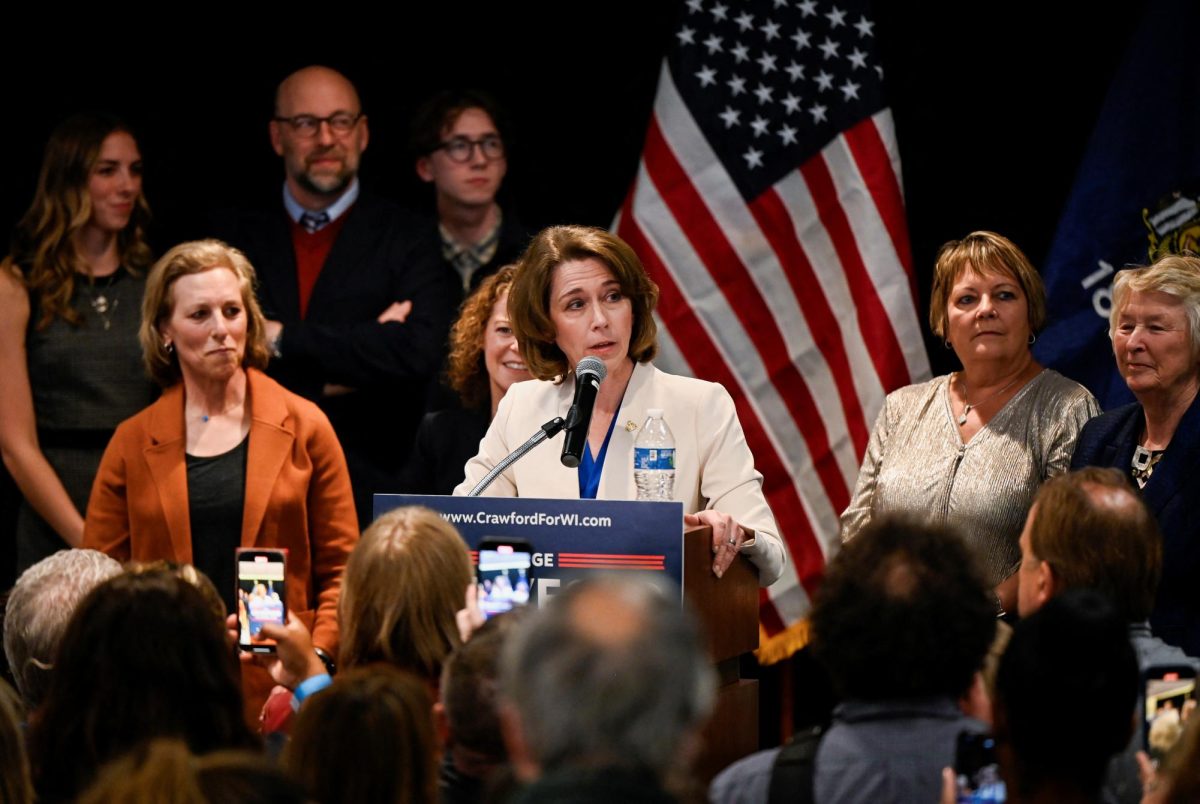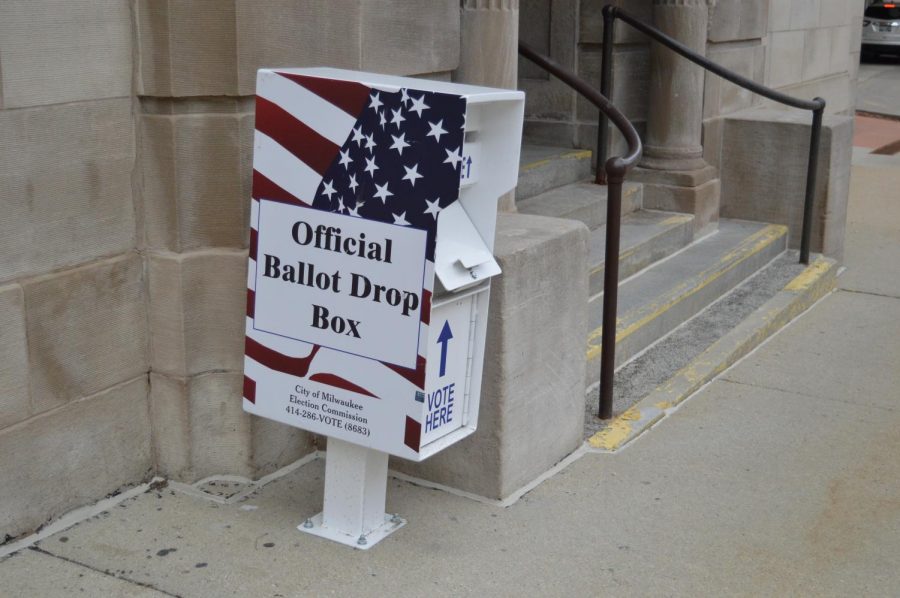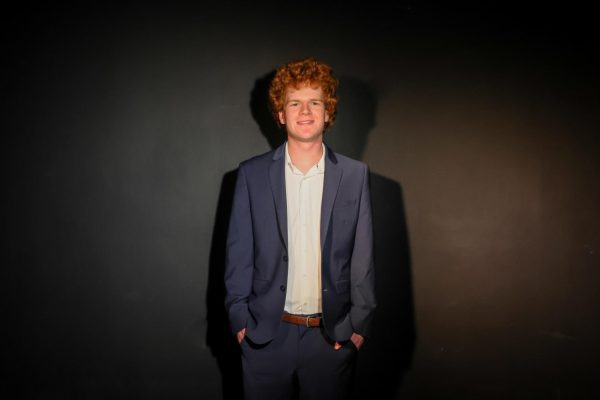Wisconsinites will vote for the leader of the state’s public school system this Tuesday after a primary narrowed the field to two candidates last February.
Formally known as the superintendent of public instruction, the Wisconsin superintendent is the only superintendent who is both elected and not subject to a state school board, making the winner of Tuesday’s election all the more powerful.
On March 20, Brittany Kinser, a candidate for the position, met with Alan Borsuk, senior fellow in law and public policy at Marquette, for a public discussion titled “Get to Know: Brittany Kinser” at Marquette’s Eckstein Hall.
Jill Underly, a candidate and the current seat-holder, originally agreed to join Kinser at Marquette for a debate. Underly eventually reneged on the debate agreement and refused an invite to a one-on-one public forum with Borsuk.
“I can’t always [participate]. Some of these things we find out just days before. It’s like, what do they expect? I’m running an agency. I’m a statewide elected official. I have a lot of obligations,” Underly said.
Borsuk told attendees that the agreement, without a date, was made before the February primary.
Kinser’s Backstory
Part of Kinser’s discussion at Marquette with Borsuk served to explain her personal history and prior work in education.
“When I was 14 years old, I decided I wanted to be a special ed teacher, and then I stuck with that,” Kinser said.
After her 10-year tenure as a Chicago public school special education teacher, Kinser moved to Milwaukee where she eventually received the “Beating the Odds” award by then-state superintendent Tony Evers for her work as an elementary school principal.
In 2024, Kinser co-founded an educational organization titled “95 Wisconsin” with the goal of ensuring that 95% of Wisconsin students are able to read by “transforming the literacy landscape through leadership development.”
Reading scores
Reading scores have been a hot topic in this race. Last year, Underly changed how Wisconsin scores its students. She said that the previous standard was “an extremely high standard to meet, beyond grade-level knowledge.”
Wisconsin previously used the standards set by the National Assessment of Educational Progress, also known as The Nation’s Report Card. The NAEP used “below basic,” “basic,” proficient” and “advanced” to describe a student’s skill level in a subject. The new standards established by Underly use “developing,” “approaching,” “meeting” and “advanced.”
In 2023, under the NAEP standards, less than 40% of Wisconsin students tested at grade level in reading and math. In 2024, under Underly’s standards, that number jumped to nearly half in the same subjects.
Deputy Superintendent Tom McCarthy defended the move, saying, “NAEP is a national benchmarking tool, not a state accountability measure. It does not measure Wisconsin academic standards, which are used by teachers to deliver instruction.”
Last year, the NAEP reported 31% of Wisconsin fourth graders are performing at or above the proficient level.
After hearing how Underly “lowered the bar” for reading standards, Kinser jumped in the race. She pledged to bring Wisconsin back to the standards set by The Nation’s Report Card.
On March 28, Evers vetoed a bill passed by Wisconsin’s Republican Legislature that would have restored the original standards.
“While I have been critical of processes for recent changes to school scoring and standards,” Evers said in his veto message, “I object to the Legislature’s attempts to undermine the constitutional authority and independence of the state superintendent of public instruction.”
School choice
Another key issue in this race is public school vouchers, also known as school choice. School choice is a program which allows parents to decide where their parents will go to school, instead of automatically going to their district’s public school.
Underly has long been a critic of school choice, particularly school vouchers. School vouchers are a form of school choice that provides public funding for students to attend private schools.
Last week, Underly said that she would like school vouchers to be eliminated, arguing that it is “taking money” from public schools.
“Parents should have choices for their children,” Kinser said. “Everyone wants to focus on vouchers, but that’s just … a scholarship for children to go to a private school. That’s just one small part [of school choice].”
Kinser was a registered Wisconsin lobbyist from January 2023 to January 2024 for City Forward Collective. During this time, the organization was primarily lobbying in favor of 2023 Wisconsin Act 11, which increased per-pupil funding for school choice programs.
About the election
Even though this race is officially non-partisan, some analysts say it is so in name only. Underly is endorsed by the Wisconsin Democratic Party and American Federation of Teachers–Wisconsin.
Kinser has described herself as a “Blue Dog Democrat,” a reference to a United States House of Representatives caucus of self-described moderate Democrats. She is endorsed by Democrats for Education Reform and former Wisconsin governor Tommy Thompson, a Republican. Brian Schimming, chairman of the Republican Party of Wisconsin, called Kinser the “common-sense candidate for state superintendent.”
Students can vote in the Wisconsin superintendent of public instruction election, the Wisconsin Supreme Court election and a number of other elections on or before April 1. Polls will be open 7 a.m.-8 p.m. Tuesday.
This story was written by JJ Vander Loop. He can be reached at jj.vanderloop@marquette.edu.


